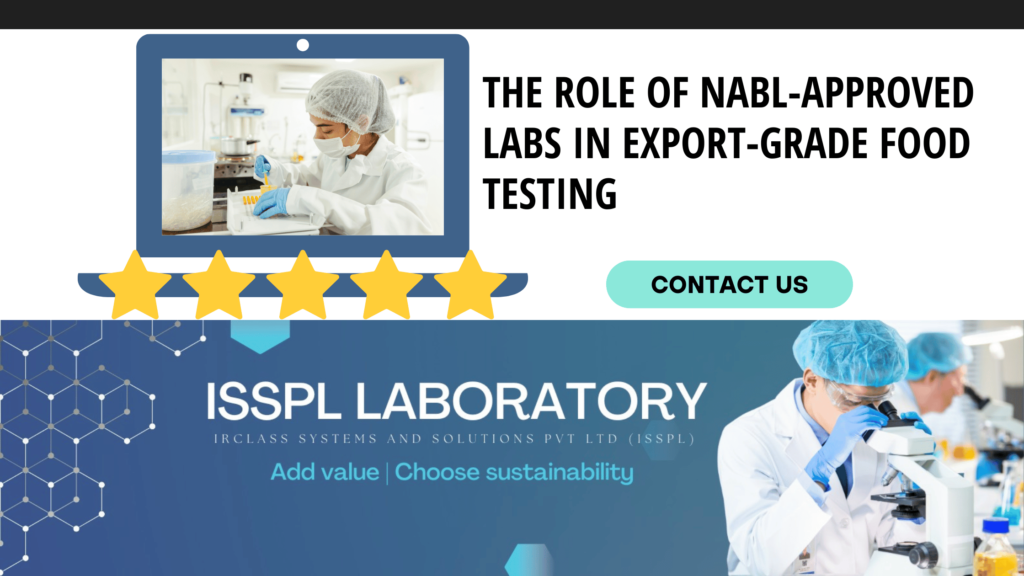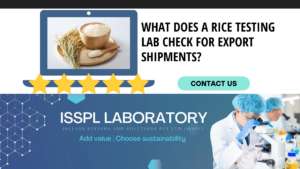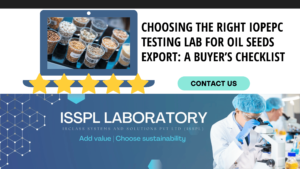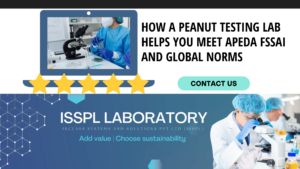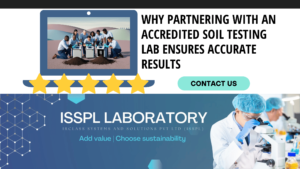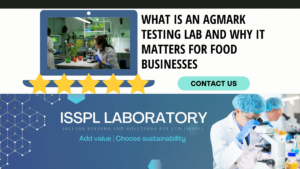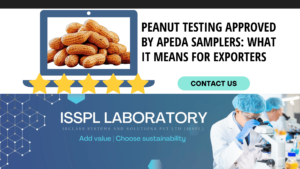An Overview by Team ISSPL - Analytical Testing Laboratory in India
ToggleExporters are faced with stringent cross-border food regulations. They require quality testing that will show that their products are safe to be shipped and are fit to be sold.
Testing that meets global expectations
Different countries expect different test results for the same food. A batch that passes domestic checks might still get rejected overseas. That is why exporters need labs that understand both local laws along with international standards. NABL-approved labs offer a clear way to meet these needs. They run tests that are accepted across markets and issue reports that hold up during inspections.
How NABL approval supports food exports
NABL works under ISO/IEC 17025. Labs under this system follow strict methods that meet traceability, repeatability along with accuracy standards. These labs do more than check a few samples. They help you prove your product quality before any shipment goes out the door.
Their reports are trusted by APEDA along with EIC and FSSAI. This makes them essential for any business that ships food outside India.
What export-grade food testing includes
Food safety testing covers physical, chemical along with microbiological risks. Every product goes through multiple steps before it is cleared to ship.
- Pesticide screening through LC-MS/MS or GC-MS/MS for trace detection in grains along with fruits and vegetables.
- Heavy metal analysis using ICP-MS for lead along with cadmium and mercury below globally accepted limits.
- Microbiological load checks for Salmonella along with E.coli and other known foodborne risks.
- Shelf life estimation across temperature bands using accelerated along with real-time testing protocols.
- Nutrition profile verification to match label claims for protein, along with sugar and fat.
Each method used is validated under international norms. The results can be shared with buyers or agencies without the risk of rejection.
Instrument capability makes the difference.
A lab can only be as strong as the tools it uses. NABL-approved labs rely on high-end instruments that work across food matrices. Advanced labs will have ICP-MS along with HPLC and GC systems that meet low detection limits. This is important because many export tests need results in parts per billion, not just parts per million. For microbial work, automated incubators along with colony counters and biosafety cabinets are part of standard protocols. These ensure samples are processed safely and consistently every time.
Labs working with herbal food or fortified products must handle diverse ingredients. They often use FTIR and UV-VIS systems to verify identity, along with purity across complex blends.
Regulatory alignment for international shipments
Food shipments are checked by multiple agencies. If the reports are not accepted at customs, the product cannot enter the country.
That is why reports from NABL labs are designed to support compliance with Codex, US FDA, GSO, along with EU food safety norms. Every method must show traceability. Every report must be signed by qualified analysts. And all data must be logged into systems that meet audit expectations.
Some labs even follow 21 CFR Part 11 protocols. This is especially useful when dealing with buyers in the United States or regulated herbal categories.
Sampling and logistics are part of the system.
For exporters located far from metro cities, getting samples tested on time can be difficult. That is where labs with wide sampling networks offer real support. Labs that manage pickup along with temperature-controlled shipping reduce the risk of spoilage before analysis.
Food samples for microbiological testing must reach the lab under specific holding times. If this is missed, the test becomes invalid.
Exporters need labs that do more than run tests. They need labs that manage the full sample lifecycle from pickup to reporting.

Beyond testing: support for development and compliance
Exporting new products means facing new tests. Whether it is a fortified product or a herbal blend, the requirements change fast.
Labs that offer method development can support you through these changes. Some labs also help with product stability or packaging checks under export conditions. These services go beyond regular analysis. They help exporters prepare for new markets before any shipments begin.
What makes a lab ready for export testing
It is not enough to offer one or two tests. Export-ready labs must offer a full range that supports batches through every stage. The lab must be approved by NABL, along with FSSAI and APEDA. They must use validated instruments with defined detection limits. They must have traceable reports that match buyer formats. They must also be able to test across categories like grains, along with spices and beverages. That includes oil, dairy and ready-to-eat formats.
What exporters risk without certified labs
Some exporters still rely on local labs that are not NABL-approved. This can be risky when dealing with customs or international buyers. If a report is rejected, the shipment can be delayed or returned. The exporter may also lose access to future contracts or markets. The cost of retesting or relabeling is high. For temperature-sensitive food, it can even mean loss of the full batch.
That is why every batch should be backed by certified data before it leaves the warehouse.
Why lab partnerships matter in export testing
Exporters that grow over time need labs that grow with them. That includes better turnaround times and wider testing options, along with more frequent sampling. Some labs offer support for multiple plants or warehouses under one agreement. This helps reduce reporting delays and keeps compliance in place. They also help train internal teams on sample prep and label checks so that rejections drop across cycles.
The role ISSPL Laboratory plays in this space
IRCLASS Systems and Solutions Pvt Ltd (ISSPL) Laboratory assists food exporters with NABL-approved testing as well as APEDA and FSSAI compliance. They provide microbial and chemical analysis of processed foods, as well as agricultural products and nutraceutical mixtures. They also assist exporters in shipping products that are of regulatory standards without the need to add delays or rework with the help of advanced instruments and traceable systems.
They also have teams that assist in product development as well as method validation and shelf life testing of export-ready batches.
They are aimed at providing your business with the depth and clarity of testing required to remain compliant without slackening the operations.
FAQs
How do NABL-approved labs support export documentation?
They provide test reports that meet international norms along with Indian regulatory standards which can be submitted directly during customs clearance.
What kind of tests are required before shipping food abroad?
Tests include pesticide screening along with heavy metal detection and microbial checks based on the importing country’s specific food safety rules.
Can small exporters use NABL labs for low-volume shipments?
Yes they can send smaller samples for the same certified tests which helps ensure quality before expanding to larger shipments.
Are all food testing labs suitable for export-grade testing?
Only labs with NABL approval along with APEDA and FSSAI recognition can issue reports that hold up during export inspections.
Do these labs help with testing for new food products or blends?
Some NABL labs offer support for product development along with method validation and stability checks before the product is launched.
